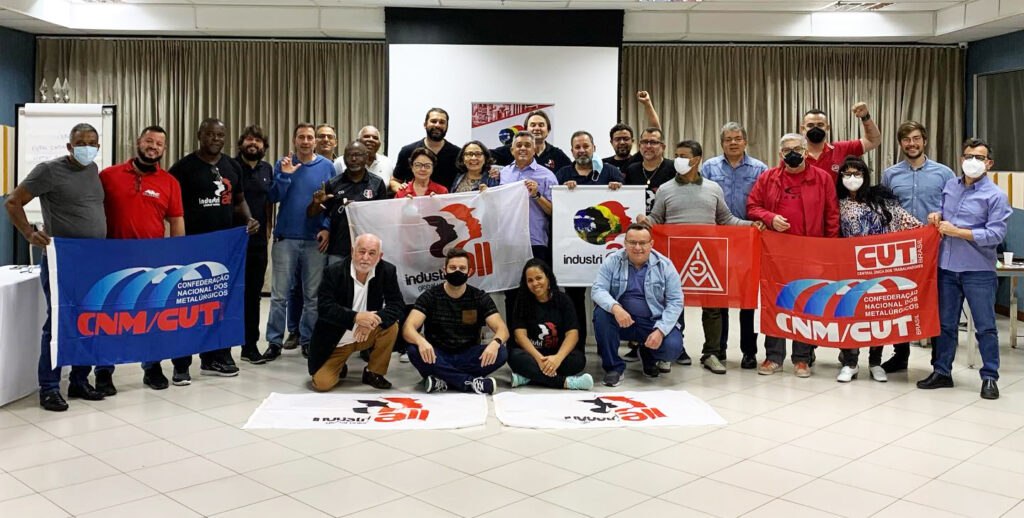Read this article in:
English
11 August, 2022A follow-up workshop was held on 1 August to organise a unionisation campaign in Brazil. The aim is to recruit 10,000 new union members in the industrial sector by the end of 2022.
From 1 to 3 August, union leaders from Brazil’s industrial sector met in São Paulo for a workshop on the development of a process and a strategic plan to organise workers in 400 companies in Brazil’s industrial sector, as part of a project supported and implemented by IndustriALL Global Union, IG Metall and IndustriALL-Brazil.
During the three-day gathering, the participants developed a work plan for each participant to train ten other union representatives in their grassroots union organisations. By so doing, some 400 union leaders will be involved in organising activities and campaigns.
The participants discussed strategies to identify and promote union leaders who can help increase unionisation in Brazil. They also worked in groups to identify the problems, strengths, weaknesses, and opportunities for organising in their respective factories and unions.
Edson Dias Bicalho, general secretary of FEQUIMFAR and a member of IndustriALL’s Executive Committee, stressed the importance of unionisation, and said:
“Brazil’s labour reform in 2017 has allowed negotiations between individual workers and the employer. Since then, we have seen a loss of collective rights, because there cannot be strong unions without the mass participation of workers. That’s why we need to reach out to the industry, using modern communication strategies, giving greater visibility to our common struggle, union proposals and the fight for better pay.”
IndustriALL-Brazil’s president, Aroaldo da Silva, who was also present for the three days of discussions emphasised the need to strengthen the organisation of workers in the workplace, said:
“We need to increase our union membership and representation, to give us more power both in collective bargaining in the workplace and at the negotiating tables of collective bargaining agreements with employers, regional and national governments. If we are not part of the union, we will not the power to face our challenges.”
The participants also discussed the role of the union, how to develop a successful organising campaign and learned about organising strategies in Germany and the United States.
